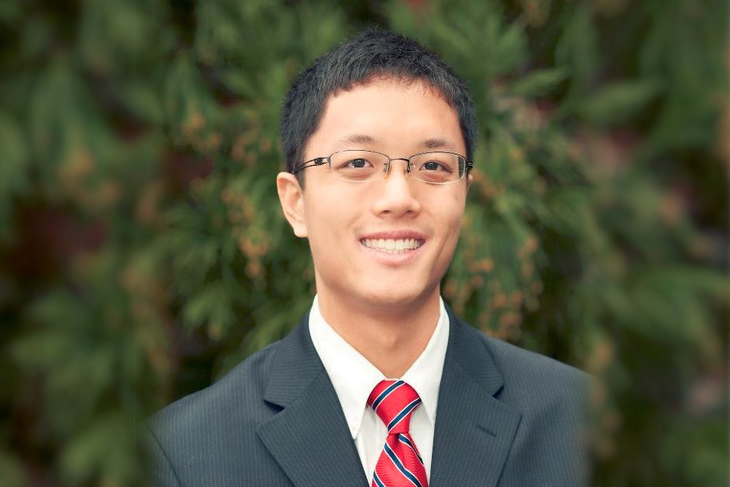
Aaron Chang
I was diagnosed with Wilson’s disease in my junior year in high school. It was an early diagnosis, and my disease was caught and treated before severe symptoms started occurring.
This experience of getting diagnosed led to my career interest of biomedical engineering, which I just graduated with my masters degree in at Johns Hopkins. In my time at Hopkins, I worked for a season in Dr. Lutsenko’s (Scientific Advisor to the Wilson’s Disease Association) lab, and am very excited for the potential of their groundbreaking research in copper metabolism.
I know that the reason my disease was caught and treated early was because of the crucial network of doctors and researchers spanning Texas, Michigan, and Baltimore that I came into contact with, and I am Walking on Wilson’s with the WDA to support and share this life-saving network for the benefit of many other future patients

Marianne Collins And Alex Cook
We hosted the big Wow in 2015 and 2016 because our youngest son, Alex, was diagnosed in 2010 at the age of 21. Once he was a very active kid and was in Community College at the time, working to transfer to NC State for a degree in Forensics. Alex was diagnosed with Wilson’s Disease in July 2010 after several months of neurological decline. In the fall of 2009, he began having issues with speech, drooling and coughing while swallowing that gradually worsened. He had issues with walking and balance and when we looked back, realized the hand tremors we saw over a year ago were probably earlier symptoms.
After a visit to our family doctor, she sent told me that he had a very abnormal neurological exam with cog-wheel rigidity and sent him to Duke Neurology. He had a CT scan which showed basal ganglia infarcts or stroke-like damage. However, it was bilateral, which is not like a stroke. Plus it continued to worsen. The MRI confirmed the damage and the radiologist suggested Wilson’s Disease. After much web-surfing, we both had come to that conclusion also and the neurologist decided to do lab testing for Wilson’s disease.
All of his lab results confirmed it with a Ceruloplasmin level of 3 (normal is 20-60) and his copper in the blood is paradoxically low since the copper is retained in his tissues and organs like brain and liver.
Alex began de-coppering treatment with Trientine 500 mg, three times a day in August 2010.
He initially declined with treatment and then stabilized, even walking again after spending 8 weeks at Wake Med Rehab. But then he declined even worse possibly due to extremely high levels of urinary copper being released too quickly. We drove 12 hours one night and admitted him to University of Michigan Hospitals Emergency Department and he was admitted to the GI service. Dr. Askari changed his medication to Zinc and he has improved slightly.
Unfortunately the treatment was too late and Alex requires fulltime care for all of his activities of daily living. With constant therapy, he is beginning to walk with the aid of a walker and an assistant and can eat some soft foods. He is happy and we try to include him in many family outings and events.
Our hope is to raise awareness leading to earlier diagnosis and better medications for safer treatments so that others will not suffer the devastating liver and/or neurological effects of this awful disease.
We hope that the video demonstrates to people, not familiar with this disease, how devastating it is. Alex and I are on the right side in the video.
Jen Cook
My step daughter Makylea Cook was diagnosed with Wilson’s almost two years ago now. They were fortunate to catch it very early in her situation. So with medicine – she has not had any of the side effects of Wilson’s. Until she was diagnosed I have never heard of Wilson’s nor had anyone in her family.
Donations
Your support allows the WDA to maintain this website, produce educational materials, support research, and hold meetings for people living with WD, their families, and the healthcare community.
Membership
As a member, you have the opportunity to communicate your concerns, share your experiences, learn about the most recent advances in Wilson disease treatment and research, and contribute to important decisions that need to be made so the WDA can be a strong patient advocacy group
WILSON DISEASE ASSOCIATION
Contact Us
- Toll Free: 866-961-0533
- Phone: 414-961-0533
Email: info@wilsonsdisease.org

